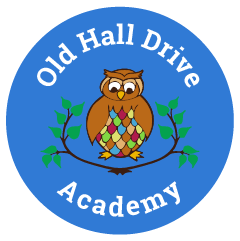Our Reading Spine
At the heart of our Reading Curriculum are our book choices. The books experienced by our children have been especially selected to ignite an excitement around reading whilst simultaneously ensuring our children are exposed to rich variety of texts which challenge and open doors to new worlds. Our children are read to for pleasure daily during DEAR (Drop Everything And Read) time which has a dedicated time slot on all of our timetables from Nursery to Year 6.
Our books are selected with the following criteria in mind to ensure a broad, balanced choice of simply amazing texts are offered to our pupils:
World-Renowned Authors and Poets: Roald Dahl, Julia Donaldson, C.S Lewis, Michael Morpurgo, Malorie Blackman– our children experience a wide range of different authors during their time with us.
Prize-Winning Books: The Costa Book Awards, Carnegie Medal, Kate Greenway Medal, Blue Peter Book Award– the best of the best are on offer to our children. Texts chosen are reviewed annually to ensure they are kept up to date and relevant to our children.
The 5 Plagues of Reading: It is imperative that our children are exposed to books which help them to develop their knowledge of more commanding types of fiction, allowing them to successfully navigate the world of reading as they grow up. These books are demanding and require more from the reader than other kinds of books. The 5 categories, which we ensure are covered across our reading spine, are books which offer: archaic language, non-linear time sequences, a complex narrative, resistant text and figurative/symbolic text.
Diversity: We are passionate about every child in our schools having read a book where they can identify with the characters. We have purposely selected books to represent our school communities. For example, Zanib Mian’s Planet Omar series has our year 4 children laughing out loud whilst year 5 learn about empathy and friendship when reading Onjali Q. Raúf’s incredible book Boy At The Back Of The Class about a boy who joins the school as a refugee.
Inclusivity: Our book selection includes choices which teach our children to appreciate, celebrate and respect differences. We want our children to experience books which challenge stereotypes and build empathy and connections with characters, guiding them in developing kindness and understanding towards others in the real world.
Emotional Response: We want our children to be invested in books. We want them to be begging our teachers to read one more page and to be having conversations with their friends over lunchtimes and playtimes about what they think will happen next. Whether that be our year 3 children sharing their sadness for the lion in the Michael Morpurgo classic, Butterfly Lion or our year 4 children laughing at Lissa Evans’ hilarious book Wed Wabbit. Laughter, anger, sadness, joy– we want our children to be moved by the books they encounter, to ignite that spark and hunger to read more which they will carry on throughout their lives.
Cultural Capital: Books open up new worlds. Our children can be transported from their seats and learn about different ways of life, different places and societies. We have selected books which expose our children to that which is outside their personal experiences.
Our book choices are carefully mapped out in our reading spine which runs from Nursery right through to Year 6.
Below are a sample of texts which appear on our reading spine.



























